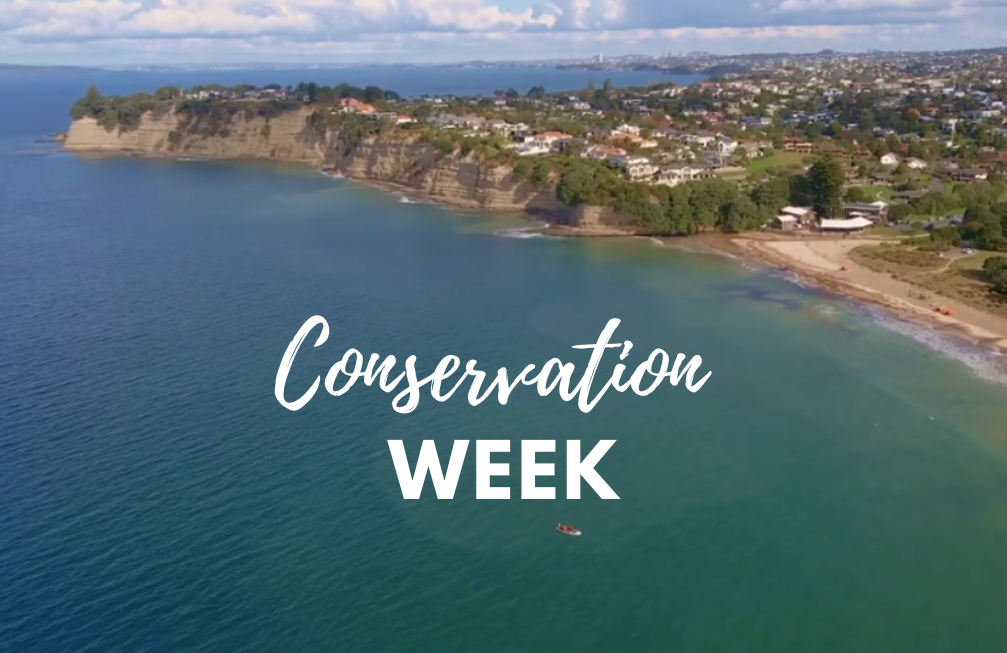
Join us to celebrate Conservation Week at Sir Peter Blake MERC on 7 September!
Te Wiki o Te Taiao, Conservation Week, this year is from 1-7 September. The Department of Conservation is calling us all to take action, big or small to help our native species and ecosystems.
Did you know over 4,000 native species are currently considered threatened or at risk of extinction? New Zealand has one of the highest levels of endemic species (found nowhere else on Earth) and also one of the highest proportions of threatened indigenous species in the world. Our sea area is 15 times larger than our land area and an estimated 80% of all of Aotearoa's indigenous species are marine. Our seas and our incredibly diverse and unique marine life need us to act now!
This is the second in-person event, and fourth overall event of our Ngā Kōrero III Series, supported by the New Zealand National Commission for UNESCO, aiming to bring Ocean Literacy Principles to life. This event is focused on Ocean Literacy Principle #4: The ocean makes Earth habitable. The day will be all about how the ocean supports life on Earth, including us, and how we can help the ocean continue to do this into the future.
What to expect
All activities and kai are completely free!
2-4:30pm: Action for our ocean on the water/beach
Join one of our paddling expeditions to nearby beaches to clean-up and collect samples OR stay at the beach in the Long Bay-Okura Marine Reserve to assist with a Litter Intelligence survey and clean-up.
4:30-5pm
Enjoy some kai and chat about what we discovered
5-6pm: Presentations
Hear from experts about how our seas truly are our survival. They will highlight the incredible things the ocean does for us, challenges the ocean is facing, and what we can do to help the ocean and ourselves thrive. Experts from the University of Auckland and the Department of Conservation (DOC) and more will share their knowledge with us on local and global initiatives. Learn about more ways you can take action for our ocean!
Register now for the beach and water activities, the presentation, or BOTH!
A few more details
~ Paddling is ocean condition dependent, but could include going on a Giant Stand-up Paddleboard (GSUP) or kayak. You may also get to help collect plankton or other samples on your voyage!
~ Come dressed for your activity: Clean-up (protective footwear that can get wet/sandy), Paddling (togs, towel). MERC can provide gloves for clean-up and wetsuits for water activities as well as other safety gear.
***NOTE: Wet Paddle Expedition spots are limited so if your plans change please cancel your reservation. These will leave promptly at 2pm so please be on time to get your spot!! Unfilled spots will become available to other event participants.
.png)
Presentations
Dr. Conrad Pilditch, Director of the Institute of Marine Science at the University of Auckland
Conrad's research has focused on the functioning of seafloor ecosystems and how they respond to globally important stressors such as sedimentation, eutrophication, ocean acidification, and climate change. His research emphasises a multi-disciplinary approach linking ecology with hydrodynamics and biogeochemistry to investigate how changes in biodiversity modify critical ecosystem processes such as nutrient processing, carbon sequestration and sediment transport. These processes are tightly coupled to the hidden work nature does for people and it is through this lens he has been actively engaging with central and regional government to explain the consequences of biodiversity loss.
"The hidden work oceans do for people"
We are a blue planet with the oceans covering approximately 71% of the Earth’s surface. Humanity is critically dependent the ocean and the ecosystems it supports, from generating more than 50% of the oxygen we breath to moderating climate and providing food that sustains billions. In this presentation I will highlight the hidden work that the oceans are doing for people, the critical ecological interactions that sustain them and how our actions (or inactions in some cases) is endangering the many benefits we derive. I will also highlight some examples of nature positive actions we can all take locally to improve the health, resilience and sustainability of our ocean ecosystems.
Adam Whatton, Senior Ranger & Supervisor, Auckland Marine District at the Department of Conservation
Adam is leading the community and advocacy programme at DOC. He’s spent over a decade with Tīkapa Moana / The Hauraki Gulf as his office, and has a background in regenerative tourism & community activation. A Gulf Island dweller, keen boatie & SCUBA diver with over 4000 dives, many of which are within the Hauraki Gulf, Adam enthusiastically shares his love for this special place with listeners.
"Protecting the Hauraki Gulf / Tīkapa Moana / Te Moananui-ā-Toi"
Hear from members of DOC’s new Auckland Marine District on why the Hauraki Gulf is so special, why protection is a positive thing for us all, and learn more about the proposed new Marine Protected Areas.
Short video from Heal the Hauraki
Heal The Hauraki is a three part docuseries and action campaign highlighting some of the incredible restoration & protection work taking place in the Hauraki Gulf. In this series we celebrate the inspiration, courage, and determination of people and communities working together to heal some of the big environmental challenges we face in the Hauraki Gulf. We celebrate the transformative power of working together to heal our natural world. Each episode is a ‘day in the life’ of a local leader working with and for communities to restore and rejuvenate the health of the Hauraki Gulf. Through storytelling, digital media, and community action, the project Heal the Hauraki connects people with solutions and fosters aroha in our actions. You can find “Heal the Hauraki” on You Tube, Instagram and Facebook.
